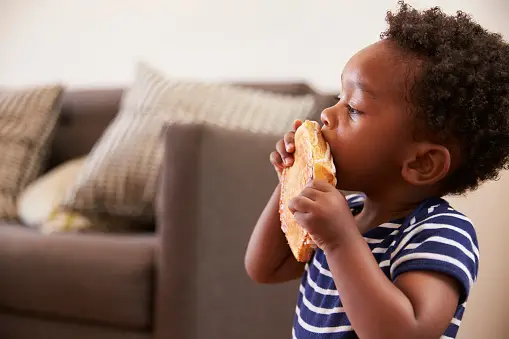There are many highlights of being a parent and watching your baby take their first bite of grown-up foods is a delight. Babies yearn for solid foods at different stages of their development. While some start showing signs as early as 4 months, others begin to show interest at 6 months and above. In this article, you'll learn more about easy cues to note when your baby is ready for solid foods.
Why it is important to wait until 6 months to introduce babies to solid foods
The World Health Organisation recommends mothers to introduce solid foods slowly to babies at 6 months and above. This is because breast milk or infant formula enriches babies with the necessary nutrients and vitamins they need to grow up until 6 months of age. The WHO advocates for exclusive breastfeeding if possible because it helps boost the baby’s fragile immune system and protect babies from infections and illnesses.
4 ways to tell if your baby is ready for solid foods
- They sit on their own: If your baby can sit with minimal support, it means they're on their way to solid foods. Sitting on their own helps them grab food and aids proper food movement to enable them to swallow safely.
- Good neck control: Babies need good neck control for stability when eating. It’ll help prevent discomfort like vomiting when eating. If your baby doesn't have good neck control at 6 months yet, lie them on their side to build neck muscles.
- Grab objects close to their mouth: If you notice your baby grabbing toys and objects close to their mouth, this could be a sign that they're ready for solid food.
- Tries to eat when you’re eating: If you notice your baby is interested in what you're eating, this could be a sign. They could be following your hand movement, opening their mouths when the food gets into your mouth, or even carrying a spoon to join you!
Behaviours that could be mistaken for signs that your baby is ready for solid foods:
- Chewing on their lips or fingers
- Crying for more feed
- Waking up at night to feed
These behaviours are normal and don't signify that your baby is ready for solid foods. Don't be in a hurry to introduce solid foods at 6 months if your baby doesn't show signs. Exercise patience as babies are different from one another.
Frequently Asked Questions (FAQs)
- Can I feed my baby solid foods at night?
If your baby is already conversant with solid foods, you may not need to feed them solids at night unless they request it.
- Can I introduce pap as a solid food?
Pap is an excellent meal when getting your baby on solid foods. It's rich in fibre and has a high water content to prevent constipation.
- Why does my baby throw away solid foods instead of swallowing them?
This is normal as it'll take time for them to start swallowing and get accustomed to solid foods. Exercise patience with them.










Comments